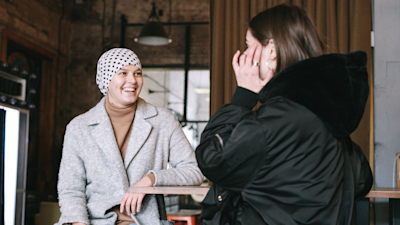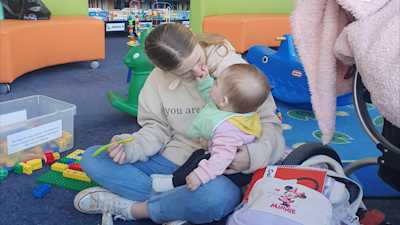Stephen gained confidence and more control over his life with support from his Case Worker, Heidi.

Image: Stephen, wearing a black cap and a grey hoodie, sits next to Heidi, who has long blonde hair and wears a purple top. The pair are in Stephen's kitchen, using an ipad at the table.
Stephen, 56, has been steadily building his independence with support from his Case Worker, Heidi Byrne.
For over two decades, Stephen has worked at a local bakery, a job he deeply values. The bakery gave him a chance when he needed it most.
"They were very good to me. I’d been unemployed for a while, and they gave me a job," Stephen said.
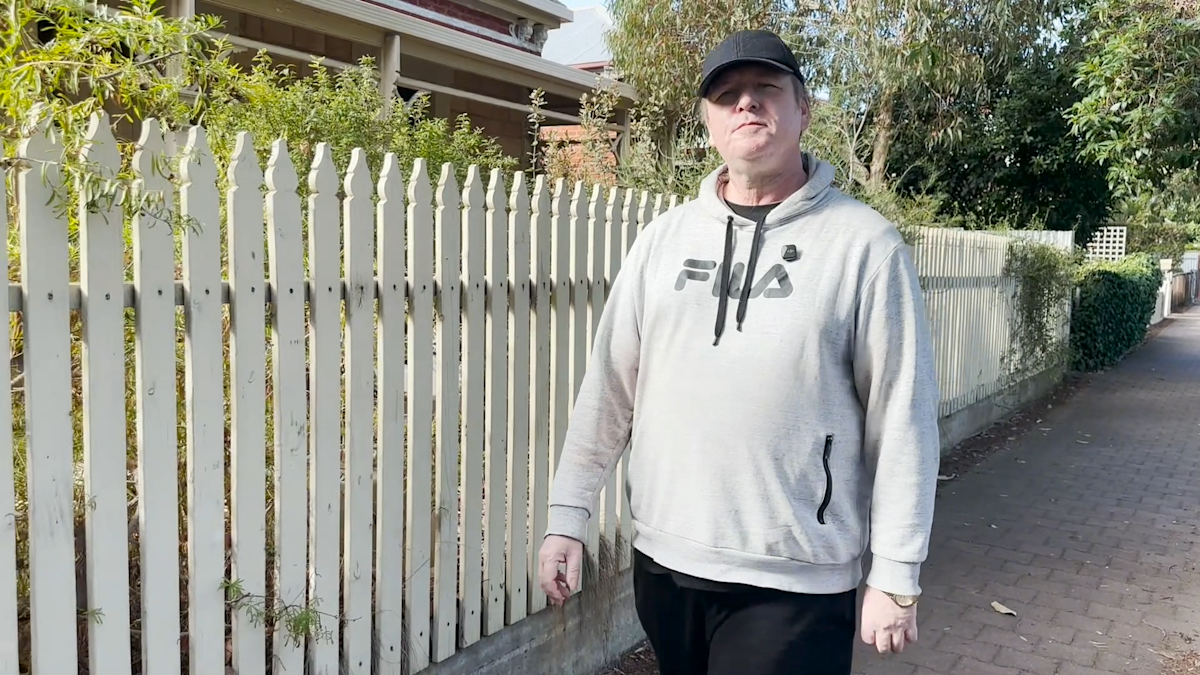
Image: Stephen walks down a path on a suburban street.
Stephen has a close relationship with his mother and two sisters. When his mother’s health declined and his sisters could no longer provide the same level of care, Stephen stepped in.
"My mum hasn’t been well lately," Stephen explained.
"Both my sisters normally look after her, but my older sister had a health problem, and my younger sister can only do bits and pieces."
"So, I’ve stepped up and taken time off to look after her, doing errands for her and doing stuff like that."
The shift made Stephen realise how much he relied on his family for his day-to-day matters. He wanted to do more for himself, but recognised he could not make this change on his own.
"I realised that I needed some support," Stephen said.
In November, Stephen began working with Life Without Barriers Mental Health services and met Heidi, who has been helping him develop practical skills to boost his independence and confidence.
One of the first areas they focused on was improving Stephen’s digital literacy. Stephen previously relied on his sisters to access his payslips and manage his superannuation digitally.
"My sister was having to get my payslips from my work because they send them out in an email," he said.
Stephen had an email account but did not use it because he was 'all fingers and thumbs'. With Heidi’s help, he set up and learned to use email, which has allowed him to receive his own payslips and manage other digital communications.
"It feels good to be empowered."
Now, Stephen’s confidence technology has grown. Holding up his mobile phone, Stephen said, "She has got me using one of these. I never thought I would."
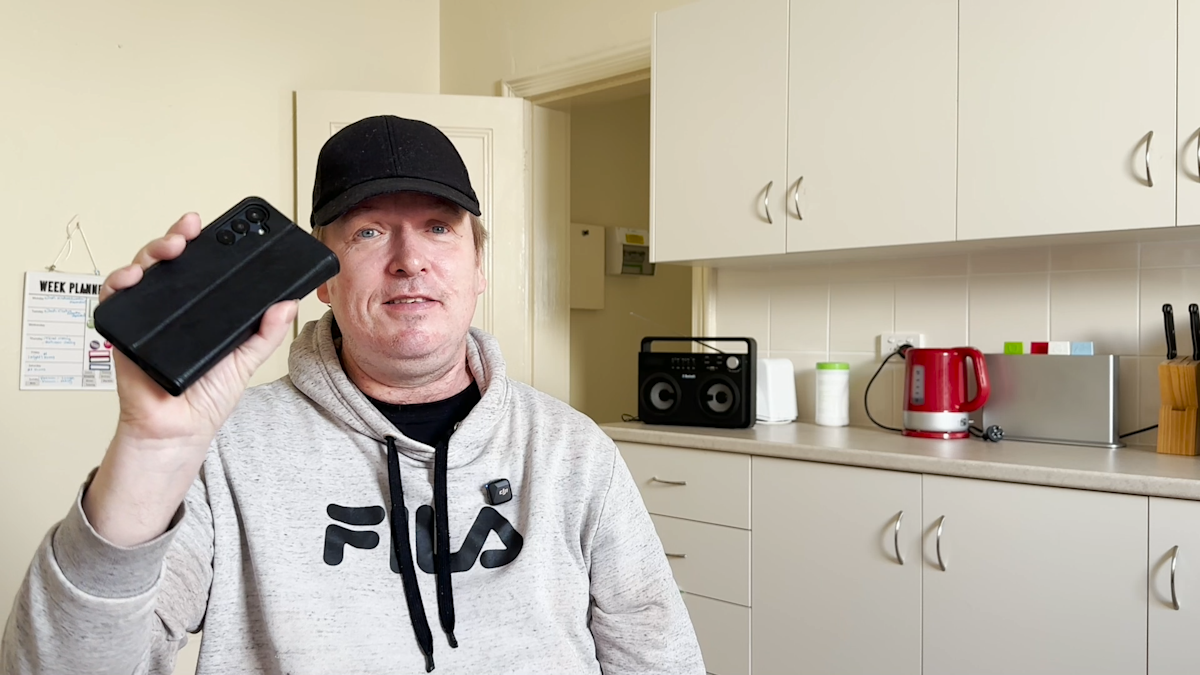
Image: Stephen sitting in his kitchen. He holds up his mobile phone to the camera.
Heidi even helped him set up a Google Mini that had been sitting unused.
"My sisters weren’t able to help me at the time, and nobody else was able to help me," he said.
With newfound access to technology, Stephen has been exploring his interests.
"I like my music as well, so I’ve been looking at YouTube and Spotify and a few other things," he said.
"I wish I actually got it done a long time ago, but there’s still lots of things to discover."
Beyond technology, Stephen is now thinking more about his health and wellbeing. He plans to see a dietitian, get back into exercise, and fix up his bike. He is also hoping to connect more socially.
"I feel very comfortable with Heidi. I look forward to when we see each other," Stephen said.
"She gives me the confidence to focus on what we’re doing. We’ve got a good rapport, she’s got a good sense of humour as well, like mine."
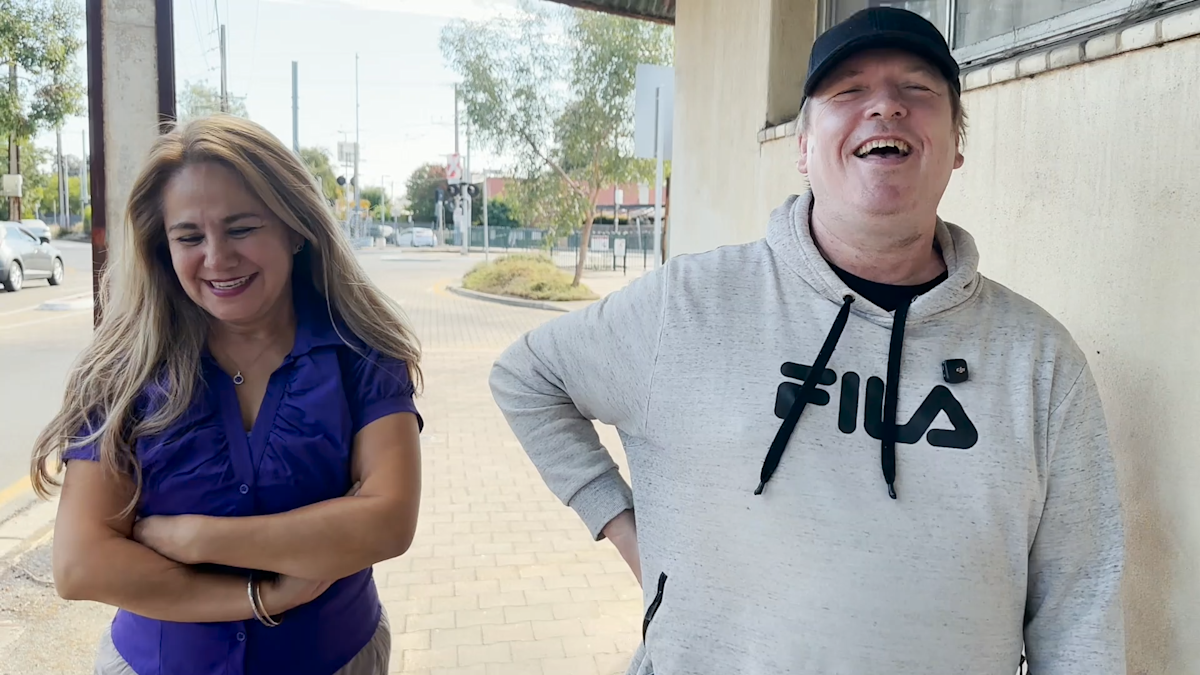
Image: Stephen and Heidi walking together, laughing.
He adds that Heidi gives him the push he needs to do things properly, acknowledging that without her support.
"I probably would have just gone in my own set ways."
Stephen’s family has also noticed the positive changes.
"They’re very happy with the support I’m getting with her," said Stephen.
One of Stephen’s most significant changes is his growing self-reliance. Looking ahead, Stephen feels confident that he’ll be able to maintain the progress he’s made, even if Heidi is no longer supporting him directly.
"Even if eventually, when Heidi leaves, I can just carry on while she’s not here anymore."
Non-Acute Psychosocial Support
Provided one-on-one in a person’s home and local community, Non-Acute Psychosocial Support is aimed at supporting people with mental health conditions, aged 16 to 64, who require non-acute psychosocial support to enhance mental wellbeing, improve their level of functioning, and establish longer term community connections.
Non-Acute Psychosocial Support is delivered from a Recovery Oriented Practise, meaning that an individual is the expert in their life, and we support and coach them to find strategies that work to meet their goals.
Learn more about Non-Acute Psychosocial Support and our Mental Health Services in South Australia.

